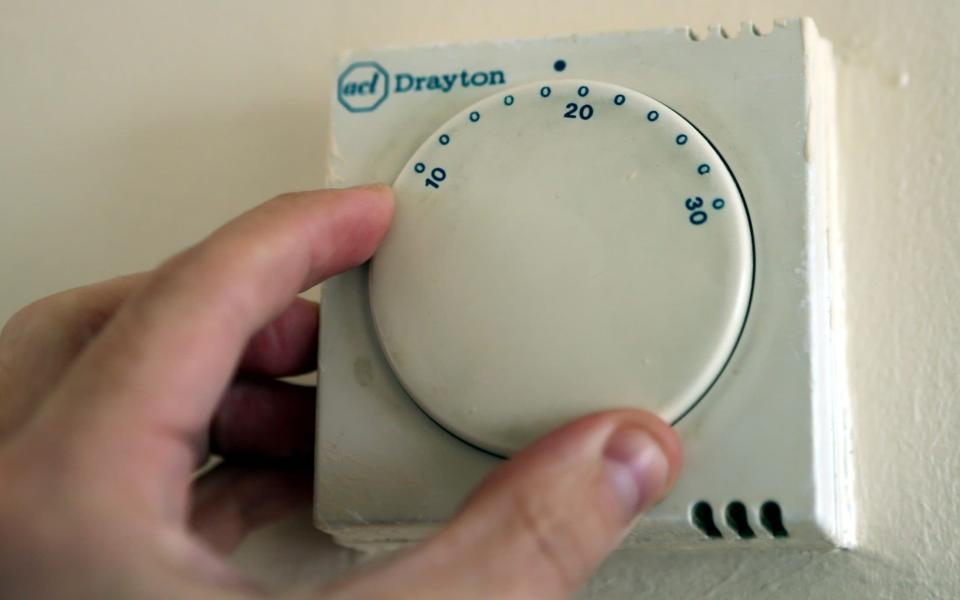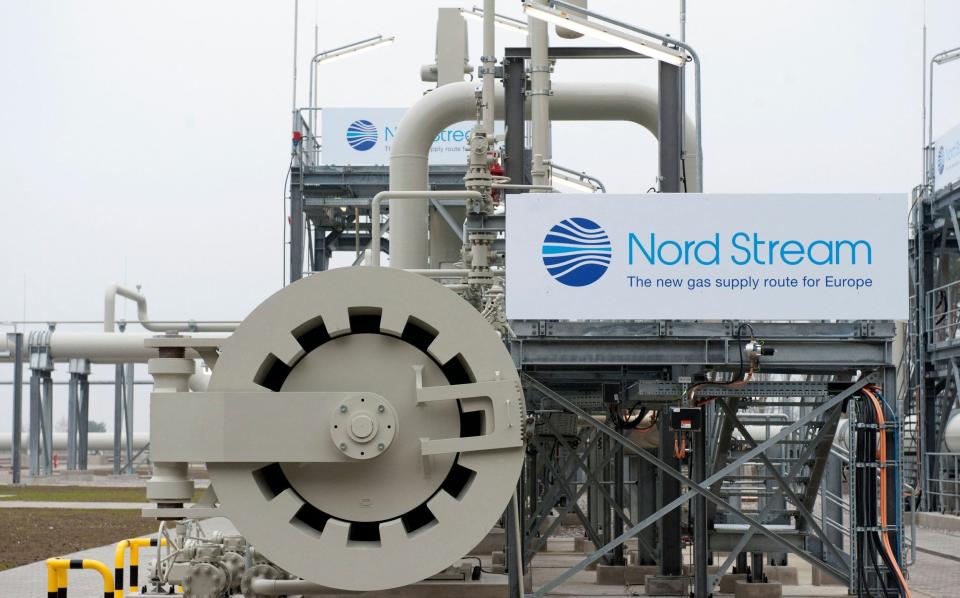What millions of households could be told to do to avoid blackouts this winter

Households could be asked to turn down their thermostats and switch off their lights under Government plans to avoid winter blackouts.
Emergency contingency plans for a gas or electricity supply shortage include public appeals to use less energy, The Telegraph can reveal.
Amid mounting concern over shortages in the coming months, the National Grid has held meetings in recent days with representatives from energy intensive industries to try and avoid a worst case scenario of blackouts or a shutdown of supply.
EU countries have been asked to cut their gas usage by 15 per cent from next month, amid fears they will not be able to store enough for winter after Russia reduced supply via the Nord Stream 1 pipeline.
Several European countries including Germany, Austria and France have already appealed to the public to cut their energy use by taking shorter showers, switching off lights and turning down thermostats.

Official contingency plans for the UK seen by The Telegraph include the option for the Government to give similar advice.
The document states that public appeals to cut electricity and gas usage could be delivered at regular intervals via radio, television and social media as well as posters and leaflets.
To avoid blackouts, a deal could also be struck which would see the National Grid pay large users to switch off to avoid cutting supply elsewhere.
But Arjan Geveke, the director of the Energy Intensive Users Group, which represents industry, said calls on the public to reduce demand would be made before National Grid started paying industry to shut down.
“First of all they will want to do a public information campaign because that’s the least costly option,” he said. “There’s obviously an increased risk of security of supply in the winter.”
National Grid has asked electricity suppliers to establish ways to pay households to switch their usage to times of peak supply, such as high wind power, and reduce at other times.
But two major national suppliers, British Gas and Shell, told The Telegraph they had no plans to do so this winter.
Ministers reluctant to appeal to public to cut energy use
National Grid will release an early winter outlook next week, months ahead of its usual October release, to help prepare for what is expected to be a difficult season.
Britain is not reliant on gas supplies from Russia, but could be affected if demand for alternative sources rises in Europe.
Analysis for The Telegraph by consultancy EnAppSys found that extreme gas curtailments across Europe could lead to blackouts in the UK. The Government has asked coal-fired power stations to stay open past their planned closure date, and is working to reopen the Rough gas storage facility five years after it was shut down.
Ministers are understood to be extremely reluctant to appeal to the public to cut their energy use, and believe that record high prices will naturally reduce demand.
Annual energy bills could reach £3,244 under the October price cap, rising to £3,363 from January, according to new estimates from consultancy Cornwall Insight.
But the Government would be forced to act if there was a real risk of the worst-case scenario, which is millions of households facing electricity blackouts.
There are no plans to cut gas use to households, which would require a manual reconnection of every home for safety reasons.
The Government plans to update its emergency protocols for gas and electricity supply later this year.
A UK government spokesperson said: “The UK has no issues with either gas or electricity supply, and the government is fully prepared for any scenario, even those that are extreme and very unlikely to occur.
“National Grid Gas has standard, long-standing emergency procedures in place to protect the integrity of Britain's gas network in the extremely unlikely event of a supply emergency. Ministers are not involved in this process."
Earlier this month, the UK’s infrastructure tsar told The Telegraph the public should be told to cut their usage. Sir John Armitt, the chairman of the National Infrastructure Commission, said there would need to be a public information campaign to encourage people to reduce peak time usage by moving their dinner times and turning down their thermostat this winter to avoid blackouts.
The UK Government’s energy supply strategy calls for increasing technologies such as nuclear and hydrogen, but says little about reducing demand.

 Yahoo Finance
Yahoo Finance 